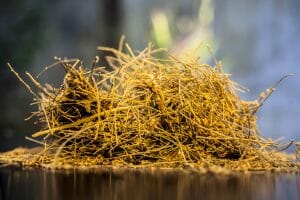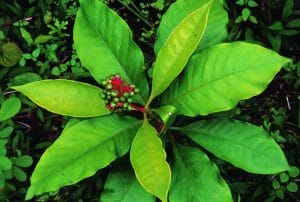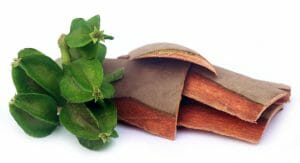Ayush Herbs Carditone Review: Ingredients, Side Effects & More

With its ties to the ancient practice of Ayurveda, Ayush Herbs Carditone is a product designed to help your heart function at peak performance.
Table of Contents
Caditone’s Main Ingredient–Convolvulus Pluricaulis

C. pluricaulis works by breaking down free radicals and minimizing their detrimental effects on the tissues of the body. A high concentration of free radicals is thought to play a role in diseases as varied as Huntington’s disease, Alzheimer’s, and hypertension.
An in-depth study on the antioxidant potential and effects of C. pluricaulis found that its scavenging of free radicals is thought to have a neuroprotective effect in the brain, protecting neurons from damage. It is particularly useful when used during stress, preventing stress related memory loss. The researchers concluded that C. pluricaulis exhibits “rich antioxidant status” and “diminishes neuronal damage…by decreasing oxidative stress”. (1)
Carditone’s Supporting Ingredients

Carditone contains 50 mg of Rauwolfia, an amount found by reviews to have cardiovascular benefits without some of the side effects that can be found with doses above 100 mg. Commonly cited side effects of 100 mg and above tend to be gastrointestinal. (2)

One study, regarding heart failure, found that treatment with T. Arjuna in patients with congestive heart failure “caused long lasting improvement in signs and symptoms of heart failure… with definite improvement of quality of life.”
Another found that when combined with conventional therapies, patients saw a “16% reduction in LDL cholesterol, a 15% decrease in cholesterol, and an 11% decrease in triglycerides” over pharmaceutical drugs alone.
The same review found that across the studies they found some instances of lesser side effects like stomach upset and headache when doses of between one and two grams were used. (3)
Because high blood sugar can damage the heart over time, Tribulus terrestris is of particular interest for those who have diabetes.
Over a three month period, researchers studied non-insulin dependent women with Diabetes type 2. They concluded there was a reduction in both total cholesterol and LDL cholesterol, in addition to lowering blood glucose in the patients treated with T. Terrestris (4). Another study in mice supported this finding, noting that there was a reduction in both blood glucose and serum cholesterol (5).
Ayush Herbs Carditone Study
Conducted over six months, researchers wanted to establish the safety, efficacy, and potential side effects of long term use of Ayush Herbs Carditone in patients with hypertension (high blood pressure). Participants were excluded if they had a history of heart disease, bowel disease, depression, as well as other serious illnesses.
The results of the study were a “significant decrease in systolic and diastolic blood pressure” that were also “clinically meaningful”. They also noted a modest but significant increase in potassium they found “ clinically interesting and potentially related to modulation of blood pressure.”
The researchers concluded the results “suggest that the investigated dietary supplement is safe for long-term use in adults with prehypertension and stage I hypertension” (6).
There were no serious adverse events cited during the duration of the study. The most common side effects cited as a reason to stop treatment were nasal congestion (three participants) and lightheadedness/tiredness (three participants). The researchers noted that allergies may be a contraindication when using Carditone, increasing nasal congestion.
The results of these studies suggest that Ayush Herbs Carditone may help keep your heart healthy by reducing blood pressure, reducing total cholesterol and LDL cholesterol, and keeping oxidative stress of tissue at bay. As always, consult with your doctor, especially if you have prior conditions or are taking medications.

Click here to try Ayush Herbs Carditone today!
Thank you for taking the time to read Ayush Herbs Carditone Review: Ingredients, Side Effects & More
Please note: All information presented to you in this website is intended for your general knowledge only and is not a substitute for medical advice or treatment for specific medical conditions. We cannot, and will not give you medical advice. We strongly recommend you consult your physician for any and all specific health issues. If you have any questions or contributions, please contact us via email or phone-call. We are constantly looking for new information to promote wellness – and hearing from you would make our day.
Live Vibrantly!
References
- Chemical composition, antioxidant potential, macromolecule damage and neuroprotective activity of Convolvulus pluricaulis
- Rauwolfia in the Treatment of Hypertension
- Medicinal properties of Terminalia arjuna (Roxb.) Wight & Arn.: A review – ScienceDirect
- Efficacy of the Hydroalcoholic Extract of Tribulus terrestris on the Serum Glucose and Lipid Profile of Women With Diabetes Mellitus: A Double-Blind Randomized Placebo-Controlled Clinical Trial
- Hypoglycemic effect of saponin from Tribulus terrestris
- Prospective Safety Evaluation of a Cardiovascular Health Dietary Supplement in Adults with Prehypertension and Stage I Hypertension]






